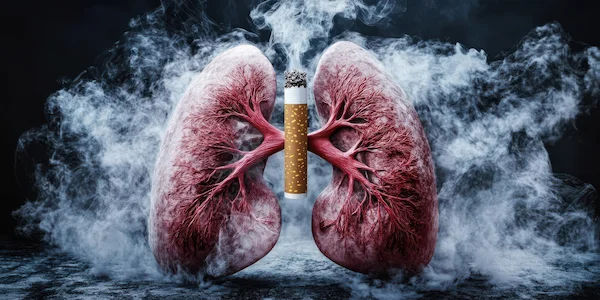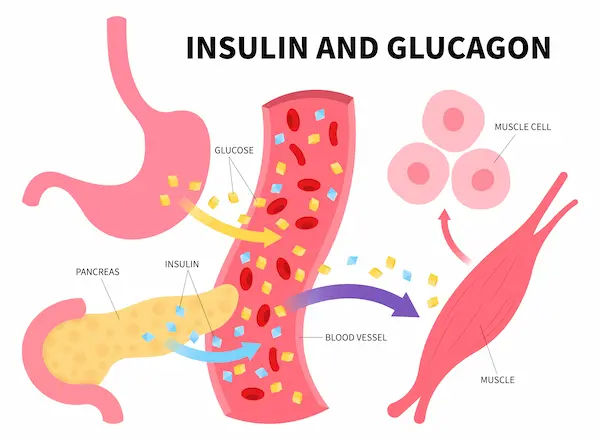Torch Screen Overview and Information
Know all about the torch screen, why it is done, who should get tested, what tests are included in it, result interpretation, and prevention of torch infections.


If you're pregnant or planning to conceive, you may have heard about the TORCH screen, a test that helps detect infections that could harm your baby. This article explains everything you need to know about the TORCH screen in simple terms, including why it's important, what it tests for, and how to manage any risks.
What is a TORCH Screen?
The TORCH screen is a blood test that checks for a group of infections that can affect a developing baby during pregnancy. The name TORCH stands for:
• T – Toxoplasmosis
• O – Other infections (such as syphilis, hepatitis B, HIV, and parvovirus B19)
• R – Rubella (German measles)
• C – Cytomegalovirus (CMV)
• H – Herpes simplex virus (HSV)
These infections can cause serious complications for the baby, including birth defects, developmental delays, or even miscarriage. Early detection helps doctors take steps to protect both mother and baby.
Consult a Pulmonologist for Personalised Advice
Why is the TORCH Screen Important?
Some infections may not cause noticeable symptoms in the mother but can still harm the baby. The TORCH screen helps identify these infections early so that doctors can provide the right treatment or preventive care.
Who Should Get Tested?
• Pregnant women (especially in the first trimester)
• Women planning pregnancy (to check immunity and take precautions)
• Newborns (if the mother had an infection during pregnancy)
What Does the TORCH Screen Test For?
Let’s break down each infection tested in the TORCH panel:
1. Toxoplasmosis
• Cause: A parasite found in undercooked meat, contaminated water, or cat faeces.
• Risks: Can lead to miscarriage, stillbirth, or brain and eye damage in the baby.
• Prevention: Avoid raw meat, wash fruits/vegetables, and wear gloves while handling cat litter.
2. Other Infections (Syphilis, HIV, Hepatitis B, etc.)
• Syphilis: A sexually transmitted infection that can cause severe birth defects if untreated.
• HIV & Hepatitis B: Can be passed to the baby during birth; early treatment reduces risks.
• Parvovirus B19 (Fifth Disease): Can cause anaemia or miscarriage in severe cases.
3. Rubella (German Measles)
• Cause: A viral infection preventable by vaccination.
• Risks: Can cause deafness, heart defects, and intellectual disabilities in the baby.
• Prevention: Get vaccinated before pregnancy (not during).
4. Cytomegalovirus (CMV)
• Cause: A common virus spreads through saliva, urine, or close contact.
• Risks: Hearing loss, vision problems, or developmental delays in babies.
• Prevention: Wash hands frequently, avoid sharing food/utensils with young children.
5. Herpes Simplex Virus (HSV)
• Cause: A sexually transmitted or skin-contact virus.
• Risks: Can cause severe infections in newborns if passed during delivery.
• Prevention: Antiviral medications may be given if the mother has an outbreak.
How is the TORCH Screen Done?
The torch screen is done as follows:
• Simple blood test: A small blood sample is taken from the mother’s arm.
• Timing: Usually done in early pregnancy or before conception.
• For newborns: If the mother had an infection, the baby may be tested at birth.
Interpreting the Results
It includes:
• Positive (Infection Detected): Means you have (or recently had) the infection. Further tests may be needed.
• Negative (No Infection): Means you are not currently infected.
• Immunity (IgG antibodies): Some tests check if you are immune (e.g., from past vaccination or infection).
Your doctor will explain the results and recommend the next steps if needed.
What If the Test is Positive?
Don’t panic, many infections can be managed with proper care:
• Antibiotics (for syphilis or toxoplasmosis).
• Antiviral medications (for herpes or CMV).
• Monitoring the baby with ultrasounds or additional tests.
• Delivery precautions (e.g., C-section for active herpes).
Preventing TORCH Infections
Here are some simple steps to reduce risks:
Before Pregnancy:
1. Get vaccinated (especially for rubella).
2. Avoid raw/undercooked meat and unpasteurized milk.
3. Practice safe sex to prevent STIs.
During Pregnancy:
• Wash your hands frequently.
• Avoid contact with cat litter or soil.
• Stay away from people with contagious infections.
When to See a Doctor?
If you’re pregnant or planning to conceive, talk to your doctor about:
• Getting a TORCH screen if you have risk factors.
• Any fever, rash, or flu-like symptoms during pregnancy.
• Vaccination status (rubella, hepatitis B).
Final Thoughts
The TORCH screen is a simple but powerful test that helps protect your baby from harmful infections. If you're pregnant or planning to be, consider discussing this test with your doctor. With early detection and proper care, most risks can be managed effectively.
Consult a Pulmonologist for Personalised Advice
Consult a Pulmonologist for Personalised Advice

Dr. Rajkumar Kulasekaran
Pulmonology Respiratory Medicine Specialist
10 Years • DNB Resp. DISEASES, FCCP
Chennai
Apollo Speciality Hospitals OMR, Chennai
(75+ Patients)

Dr Abhishek Verma
Pulmonology Respiratory Medicine Specialist
5 Years • MD (Respiratory Medicine), PDCC (Interventional Pulmonology) Alumni SGPGIMS & KGMU Lucknow
Lucknow
Apollomedics Super Speciality Hospital, Lucknow
(50+ Patients)
Dr. Naseeha Mohammed S V
Pulmonology Respiratory Medicine Specialist
6 Years • MBBS, MD ,DNB Respiratory Medicine
Bengaluru
Apollo Clinic, Sarjapur Road, Bengaluru

Dr Rakesh Bilagi
Pulmonology Respiratory Medicine Specialist
10 Years • MBBS MD PULMONOLOGIST
Bengaluru
Apollo Clinic, JP nagar, Bengaluru

Dr. Krishna Ramanathan
Ent Specialist
10 Years • MBBS DNB
Bengaluru
Apollo Clinic, JP nagar, Bengaluru
Consult a Pulmonologist for Personalised Advice

Dr. Rajkumar Kulasekaran
Pulmonology Respiratory Medicine Specialist
10 Years • DNB Resp. DISEASES, FCCP
Chennai
Apollo Speciality Hospitals OMR, Chennai
(75+ Patients)

Dr Abhishek Verma
Pulmonology Respiratory Medicine Specialist
5 Years • MD (Respiratory Medicine), PDCC (Interventional Pulmonology) Alumni SGPGIMS & KGMU Lucknow
Lucknow
Apollomedics Super Speciality Hospital, Lucknow
(50+ Patients)
Dr. Naseeha Mohammed S V
Pulmonology Respiratory Medicine Specialist
6 Years • MBBS, MD ,DNB Respiratory Medicine
Bengaluru
Apollo Clinic, Sarjapur Road, Bengaluru

Dr Rakesh Bilagi
Pulmonology Respiratory Medicine Specialist
10 Years • MBBS MD PULMONOLOGIST
Bengaluru
Apollo Clinic, JP nagar, Bengaluru

Dr. Krishna Ramanathan
Ent Specialist
10 Years • MBBS DNB
Bengaluru
Apollo Clinic, JP nagar, Bengaluru




